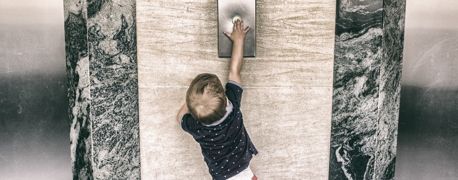What Is Discovery in Law?

Before a case goes to trial, there is a formal, often lengthy, process of gathering and exchanging information. This period is known as discovery, and its importance cannot be overstated. Under Rule 26(b)(1) of the Federal Rules of Civil Procedure (FRCP), “Parties may obtain discovery regarding any nonprivileged matter that is relevant to any party’s claim or defense and proportional to the needs of the case.” This means any information that can help make your case in court should be made available to you during the pre-trial discovery process.
The Main Goal of Discovery
The ultimate goal of discovery is to help each party know what evidence may be presented. Discovery helps to level the playing field. Plaintiffs and defendants alike have access to the same information, ensuring neither side is caught off guard by introducing a previously unknown piece of evidence. We might see that sort of ambush in fictionalized legal dramas, but the FRCP’s discovery guidelines prevent it from happening in real life.
In turn, discovery also helps parties decide on the best course of action—whether seeking a pre-trial settlement or forging ahead to trial. You may believe you have a strong case before the discovery process, only to find out that your original arguments are a little flimsy. The opposite often happens as well. Either way, the discovery process allows you to gain a more complete picture before you have to make your case in court.
The Three Forms of Discovery
There are three primary forms that discovery will take. While your case’s circumstances may make one or two of the forms more valuable, attorneys understand that there is nothing to gain from cutting corners during the discovery process. They will devote the appropriate amount of time and resources to each.
The three forms of discovery are:
- Written - This form of discovery takes place on paper. It can involve parties submitting a list of questions for the other side to answer under oath or requesting specific facts be deemed accurate.
- Document Production - This form of discovery involves an exchange of documents. It can include practically any kind of electronic and physical document as long as it relates to the case.
- Oral - Sometimes known as depositions, this form of discovery allows parties to gain sworn statements from involved individuals. More than the other forms of discovery, depositions give a glimpse into what a trial may look like. What people say when deposed should not vary from what they say in court.
The Five Major Methods of Discovery
Within the three forms of discovery are specific methods for gaining information. These methods have been designed to be comprehensive, allowing parties to gain everything they need to make the strongest cases.
The five major methods of discovery are:
- Demands for Inspection - This can include an inspection of property or a medical examination. For example, if you were injured in a plant explosion, your attorney may request access to the plant to see where the blast originated and to observe relevant details about the physical space.
- Depositions - This is the primary type of oral discovery. The parties will take sworn statements from those involved. This discovery method could include subpoenas for outside testimony.
- Interrogatories - As a type of written discovery, interrogatories involve a list of questions submitted to the other party that must be answered under oath. Like depositions, interrogatories provide a record that can be referred back to during the trial. You want to be sure that the answers you give in an interrogatory do not differ from what you say in court.
- Request for Admissions (RFA) - This is a valuable but not commonly used method of discovery. RFAs involve one party asking the other to agree, under oath, that specific facts are true. When utilized, RFAs can help to save time and narrow the focus of the trial.
- Request for Production of Documents (RFP) - RFP was covered when we discussed document production. Most often, RFPs are made by the plaintiff. Contracts, emails, medical records, financial statements, maintenance logs, photographs—all may be discoverable when relevant. If a third party not involved in the case may have relevant documents, they may also be subpoenaed.
Initial Disclosures & Discovery in a Personal Injury Case
Within 30 days of filing a personal injury lawsuit, the plaintiff (injured party) and defendant (at-fault party) must arrange a meeting to plan for discovery. At that meeting or within 14 days after the meeting, the parties must prepare and exchange initial disclosures. This is a crucial part of the discovery process. Exactly what is required at this stage will depend on the jurisdiction and the venue (where the case is filed).
Initial disclosures may include:
- Witnesses - Each party must provide a written list that includes all witnesses who are likely to have information that is relevant to the case at hand. The list should include each person's name, phone number, address, and a brief overview of what they may know about the case.
- Documents - Each party must provide all documents they currently possess or control that are relevant to the case. This might include medical bills, financial statements, emails, letters, receipts, photographs, and the like.
- Damage calculations - Each party must provide a breakdown of damages they are claiming, including documents and evidence that show how they reached the amount they are seeking. With a personal injury case, this may include money for medical treatment, lost earnings, loss of future wages, emotional trauma, and sometimes punitive damages. Every loss and injury must be taken into consideration.
- Insurance information - Each party must provide all relevant insurance policies and agreements that may apply to the case if a settlement or verdict is reached.
What Is Not Discoverable?
Discovery can feel like an incredibly invasive process. When involved, people are often curious if anything is off-limits or if their private and personal lives will be exposed. While the discovery process is designed to be broad and allow as much information as possible to come to light, there are some limitations.
The following are considered not discoverable:
- Private Matters - What exactly falls under this category is still being defined, but courts have generally recognized that certain aspects of our personal lives should remain private—as long as they are not relevant to the case. This can include health or body issues, sexuality, sexual practices, sexual partners, religious beliefs, and immediate family relationships.
- Confidential Conversations - Certain relationships are protected. The following are considered privileged: spouse and spouse, lawyer and client, doctor and patient, and religious advisor and advisee.
On top of these limitations, the court also makes an effort to protect third parties’ privacy. The court can also keep information that was disclosed during the trial out of the public record, but this often requires the judge to make a special protective order.
Why Discovery & the Right Attorney Are So Important
Discovery is arguably one of the most important aspects of your case. Rushing through the discovery process can lead to surprises in trial or overlooking crucial evidence. If you plan to file a lawsuit, you need a meticulous attorney who knows that the effort put forth during the discovery process translates to a strong argument. This may include working with medical professionals, investigators, accident reconstruction specialists, economists, mental health professionals, and a number of other experts who can build the most compelling case possible. A strong case is more likely to settle out of court, which can mean a fair recovery far faster than it would take to go through a trial to verdict. When defendants won't play fair, however, a hard-fought trial may be the best way to see justice served.
At Arnold & Itkin, we are known for our attention to detail and unwavering commitment to clients. If another party’s negligence has caused you harm, our personal injury attorneys can fight to recover the compensation you need. No matter what.
To learn more about the discovery process and to discuss your case, call (888) 493-1629!
- Categories


